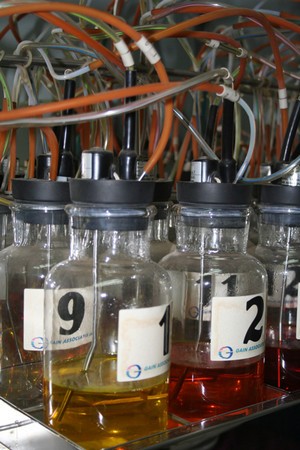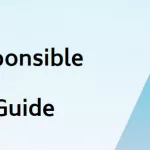The Government of Bangladesh is applying increasing pressure on the RMG industry to observe national environmental laws and regulations. International buyers also demand that the products they procure are manufactured in an environmentally-friendly fashion. However, the application of sustainable environmental practices, in particular in textile dyeing and washing units, is not optimal. One of the main reasons for this slow take-up is that most factories do not have an effective in-house environmental management system.PROGRESS, a joint program of the Governments of Bangladesh and Germany implemented by the Deutsche Gesellschaft für Technische Zusammenarbeit (GTZ) GmbH, is helping the RMG industry become more environmentally friendly. The program promotes a Chemical Management tool designed by GTZ, which addresses one subsystem of an EMS, namely profitable chemical management for companies.
What is it?
 In a nutshell, the GTZ Chemical Management Approach is a tool for cost, environmental and occupational hygiene management and organizational change. GTZ’s global experience shows that by applying this approach companies realize a number of benefits :
In a nutshell, the GTZ Chemical Management Approach is a tool for cost, environmental and occupational hygiene management and organizational change. GTZ’s global experience shows that by applying this approach companies realize a number of benefits :
1. Savings : enterprises achieve cost savings through reduction and improved use of chemicals;
2. Organizational improvements : the implementation of chemical management system requires good internal communication and setting of clear responsibilities;
3. Compliance : by improving companies’ occupational health and safety performance, the implementation of the GTZ Chemical Management approach enhances their compliance with national legislation and international standards such as the ILO 170 on safe use of chemicals at work, and
4. Future gains : The GTZ Chemical Management Approach lays the foundations of a certifiable management system, which can be pursued in the future.
How is it done?
In order not to “overstrain” companies financially and technically, this chemical management system uses a step-by-step approach to the identification of risks and the reduction of costs related to the use of chemicals.
The first step is to get a clear picture of the processes in a company and the chemicals used within. This includes elaboration of a detailed chemical inventory allowing enterprises to identify redundant products, expired chemicals, unknown or very hazardous substances.
The second step is to identify the “hot spots”, or the most obvious loss makers in the production process. As a result, companies are able to define control methods for the most important chemicals in the production process.
The third step is the planning and implementation of a company-tailored plan for continuous improvement of its chemical management. It includes monitoring and evaluation of implementation, communicating and rewarding results, and establishing new targets.
The last step focuses on safe handling and disposal of hazardous chemicals in an enterprise.
How to improve the chemical management in your company?
To help the industry in Bangladesh take advantage of this approach, PROGRESS has trained a pool of local consultants and trainers in the GTZ Chemical Management Approach. These experts are equipped with internationally tested tools for analysis of production processes, chemical hazard and risk assessments, identification and assessment of control mechanisms, and planning, monitoring and documenting of improvement measures.
As a result, enterprises in Bangladesh now have access to experts, who can train, guide and coach their staff throughout the step-by-step implementation of the GTZ Chemical Management Approach. Smaller companies may opt for group training, which combines short classroom training sessions with practical work in participating enterprises and is adapted to their requirements in terms of time and focus.
If you would like to get further information about the GTZ Chemical Management Approach, please contact :
Ms. Nishat Chowdhury
Senior Environmental Advisor, GTZ,
Telephone No +880 2 882 30 70
E-mail address : nishat.chowdhury@gtz.de


